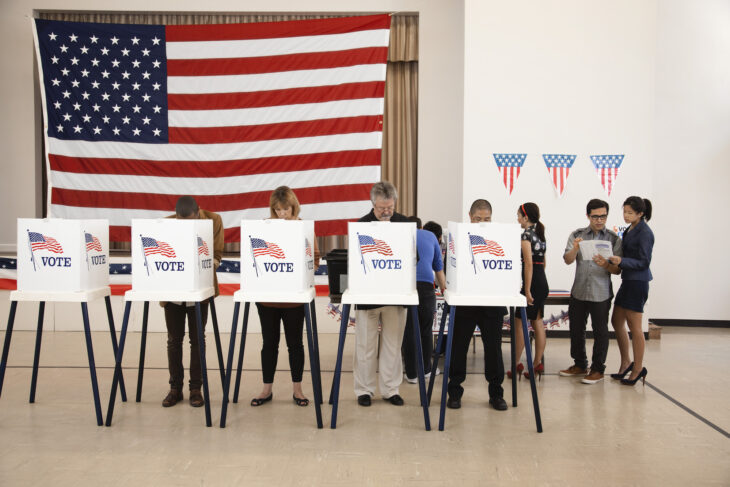
Jamaica is a small island with ‘limited’ resources, both natural and financial. We are a nation which has been historically colonised and had whatever wealth we did have (produced by slave labour) forcibly extracted and sent first to Spain but then to the UK. Post-independence we have switched the UK and her empire for the Washington consensus and we now find ourselves almost 60 years free under the yoke of neo-colonialism, a balance of trade deficit which is unbearably high, non-existent production, devoid of true foreign policies and woefully unable to feed ourselves.
During our long history since Spanish conquest, we have always been a monoculture, first a Spanish way station providing beef and tallow to ships, then a British sugar plantation after they took over, a banana plantation followed during the early 1900s when US power in the region became undeniable, and finally post-independence we have become a tourist plantation… I’m sorry, destination.
During all this time, except probably when the Spanish held Jamaica as nothing more than a way station, Jamaica has never been able to feed itself, always dependent, ever since British takeover, on foodstuffs from either Europe or North America. This started off initially because as a sugar colony every inch of land was needed for sugar production, land waiting to be used later or which had already been exhausted, or used for housing of slaves. No space left for food production and the meagre plots afforded to the slaves was never enough so importation of food, first from the 13 colonies then Canada after the revolution and the US again, has been the go-to.
With the import of food amounting to 15 per cent of our import bill, with the world rapidly changing in terms of international relations and how it is ordered, with pandemics showing the fragility of supply chain links and with an economy which is on the verge of tanking, bold decisions are needed. One such decision is to go hard with agriculture and make it a backbone in our economy.
Food security in the form of eat what you grow is not new. This was implemented in the 70s by the then People’s National Party Administration and revived during the late 2000s by the Jamaica Labour Party Administration. This idea is something which we should return to and not ignore in the overall scheme of agriculture. Import substitution and the changing of the local palate to local foods is a must if we are to have true food security.
Import substitution will mean the strong arm of the State becoming involved to both ensure compliance and deal with people who will inevitably engage in smuggling, but that first step is needed if we are to protect the market in its initial years of growth and give farmers the space they need to engage in, the trials and errors as they seek to grow crops which are suitable to the local environment and palate.
Beyond protection of the industry the State must also become involved in the modernisation of how we do our agriculture. Our methods are backwards, remaining in the early 20th century. The level of production which they have done is neither sustainable over any given period of time nor enough to feed the majority of our citizens. South-South links in this area are needed. Nations such as Cuba and Nicaragua in this hemisphere, in spite of decades of propaganda, have managed to attain a semblance of not just modernisation of their agriculture sector, but also a large degree of food security and indigenisation of agriculture, practised in environmentally friendly and sustainable ways, and its spinoff industries.
Coupled with nations such as China and even Zimbabwe, it is possible for the Jamaican farmer to enter the 21st century and utilise modern best farming practices. We must also move from the smallholder model where everyone competes against everyone in a race to the bottom. The smallholder model encourages gluts and shortages of produce and is in no shape to properly feed the nation and turn a profit for the farmer.
Some form of collectivisation is needed. It may be a shunned word bringing up images of the USSR, but with modern scholarship showing that rather than creating famine, collectivisation in both China and the USSR boosted food production we must re-assess its feasibility. We must also remember that it is horses for courses and that other models are out there, such as large farming cooperatives, farmers’ unions and many more means by which the farmer can engage in collective farming, boosting production and income which do not have to be the strict Soviet model. But we must have these disparate smallholders come together to both boost output and provide a real protection from foreign pressures which will inevitably arrive.
Along with domestic consumption, the tourism industry must be integrated into the broader agriculture modernisation strategy. Tourism is our largest legal earner of foreign exchange, and if we are honest the only money that remains locally from this multibillion-dollar industry is that of taxes (if the hotels haven’t negotiated a holiday) and wages. This is no way for an industry to work; it is no way for a nation to thrive. If we are to engage in tourism as a pillar of our economy then the industry must be compelled to accept local produce and even forcing it upon the tourists, that is integrating it into meals. This will not be easy. This is a powerful industry, and subtle changes can mean millions lost thereby killing the industry locally, but it has to be done.
They are also needed because they have the money which will be needed to modernise the industry and standardise produce to a level they want. To that end, the State must team up with local industrialists and especially the tourism bigwigs to fund this modernisation and collectivisation programme.
This would interest the big tourism chains which again, if compelled to favour domestic produce, would be seeking ways to maximise, for example, strawberry and grape production, and breed domestic value-added manufacturing to produce the jams and jellies needed in such large quantities for that industry.
A form of Public/Private Partnership in this sphere is needed, but different from what we have had before. If we do this the private sector must engage not simply for profit making motives, but for patriotic and nationalistic motives because they see the need not only for money but also for a stable and prosperous Jamaica with well-paid workers so they can continue to make money. I am not naïve; the industrialist will have as their main priority the maximising of profits, but I do believe that quite a few see the need for some levelling and building up of everyone in society so they can get to the profit-making stage.
Understanding that they have this demon of maximising profits over people is where the State must come in and ensure that the workers are represented and not left without union access (as is fast becoming the norm for the Jamaican worker) and that the workers, be they manufacturing or farm workers, through that body are the first and main point of contact for any negotiation and that the workers must be involved in all decisions made.
This modernisation, standardisation and value-added manufacturing which would capture more FX from the tourism industry could then be turned towards greater FX earnings in the form of exports. We are unable to compete in the US and UK markets beyond being niche products. We must therefore look towards CARICOM, Central America, and the African continent as destinations for our exports. If the local tourism industry is compelled into some form of domestic use and even joint funding of the projects, then they could act as the primary contact for export, with, for example, the Sandals chain importing produce and manufactured goods from Jamaica to their various locations throughout the region.
Building on that we could export properly to the various CARICOM and Central American nations (Barbados, Trinidad, Nicaragua for example) which share our diet and taste, bringing in more FX. We could even move on to engaging with West Africa, the region from which we get the majority of our dietary patterns, exporting value added goods from agricultural produce thereby reaping even more foreign exchange and integrating ourselves in a region and continent which all economists agree will be the next boom zone once Asia cools down.
The spectre which haunts us and which I have not addressed yet is oil — our reliance on it, our lack of it and the high costs of import which, along with food, drives our balance of trade into the red. Oil is a large reason that our nascent industries in the 70s disappeared (along with the political climate) and it remains a chief reason that would-be industrialists do not invest in manufacturing.
We have tough decisions to make. As much progress as green tech has and is making, especially in battery storage, it has not yet reached the point where it can sufficiently, by itself, sustain manufacturing, an issue the Germans have come upon after abandoning nuclear tech, forcing them into greater ties with Russia and their oil (Nord Stream 2).
We need to grow, and to do that we need energy. We have contributed next to nothing when it comes to global climate emissions, and if we were to begin exploiting the reserves, even then we would not have emitted nearly as much as say Mexico, which even then has emitted nothing in the grand scheme of things. As much as I dislike and don’t want to, we have no alternative at the moment and therefore must use the resources for our national interest, but we must be smart in their use. Sequester its use to strictly the manufacturing sector and build a green grid which can sustain houses and workplaces. We must also pressure the chief emitters, both historically and currently, that they must cut back on consumption, go green faster and allow smaller nations the room to grow while also dealing with the grave environmental issues.
As much as the green lobby will justifiably cry foul, we must think logically about national development and ensure that the globe does not become uninhabitable. It cannot be that in order to save the world we in the global south live in hovels while the global north consumes away, nor can it be that we ignore the very real peril and industrialise at all costs. With countries like Jamaica rich in minerals used to build green tech, with us unable to afford said green tech and with those minerals only accessible through pit mining and using an odious amount of fossil fuel to both access them and form them into the tech itself, we are saving no one at the moment by not using our oil and allowing the global north countries to ease their conscience by using green tech built by oil and damaging a global south environment (and by proxy the global environment).
With fossil fuels being needed for at least the foreseeable future as it relates to manufacturing, we must exploit the oil deposits for that sole purpose and once we have attained that level where green energy is just as efficient in manufacturing then we switch and close the spigot, ensuring no one else has access to the devil’s gold.
This is but a mere airbrush of what needs to be done with agriculture. Involvement of the youth, funding of agriculture schools, the reclaiming of lands which have been set aside for uses other than farming and so many more things need to be done in order to secure true food security and to make it a profitable and sustainable enterprise. It can be done. Nations with less have done greater things, and all this effort will take is being that bit less selfish and to think more of the collective than the individual.
As we talk about shifting cultural thought from self-centeredness to communities, this critical area and basic of food and a nutritious diet for everyone, can act as the catalyst. Ensuring that everyone is fed, that gunmen do not roam the streets, and the people are schooled, housed and employed is not a far leap. We have to start somewhere and there is no better way to start and to build true human interaction, camaraderie and a sense of community than food. Let it be done then.



